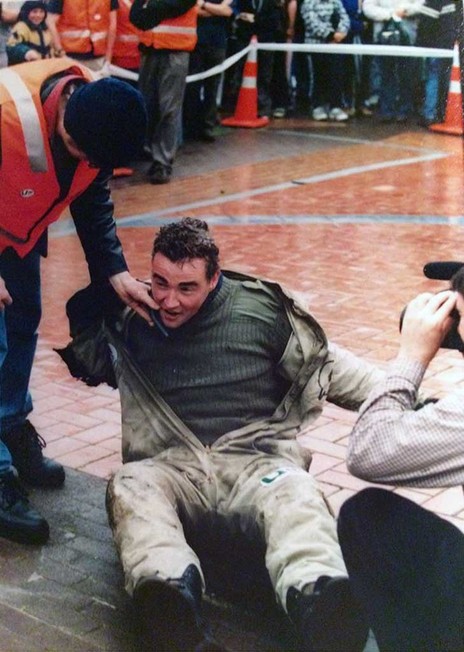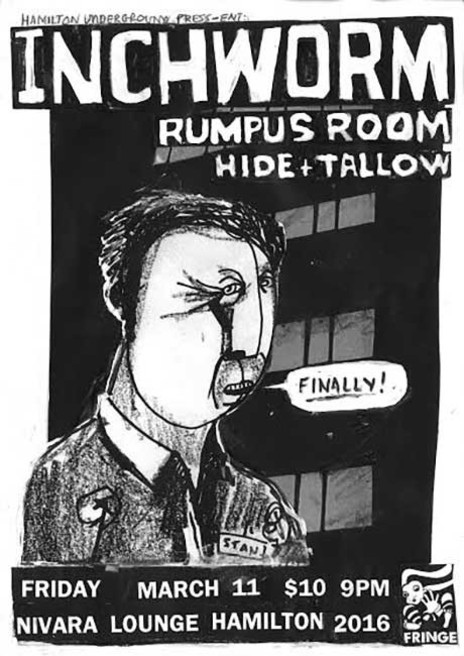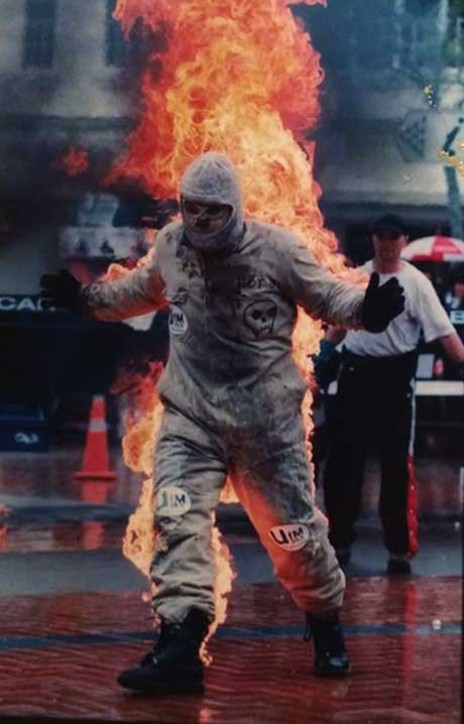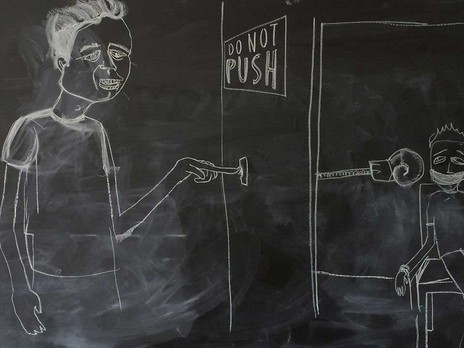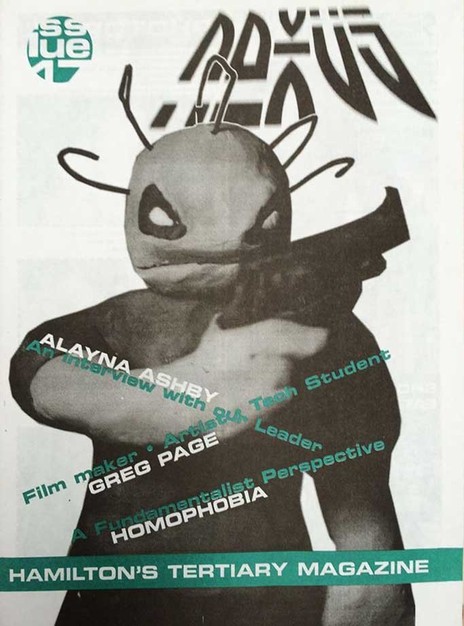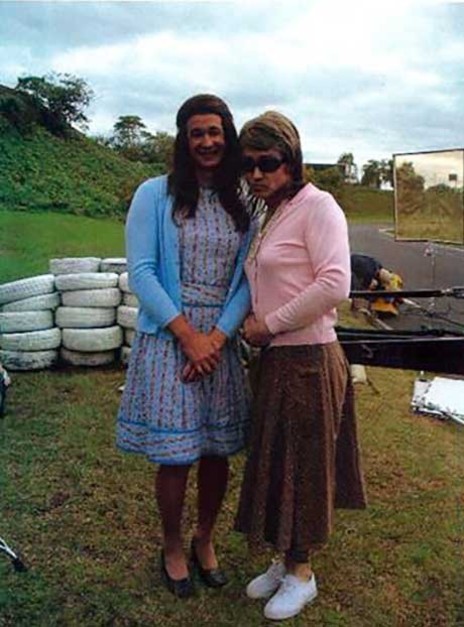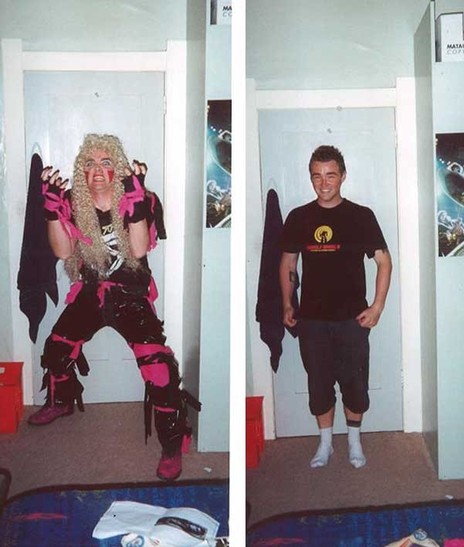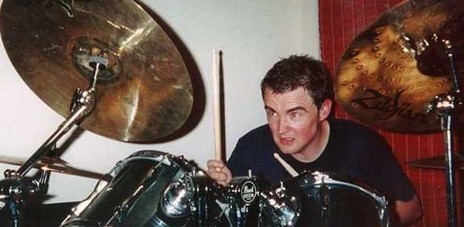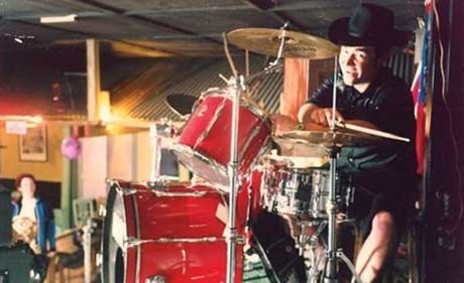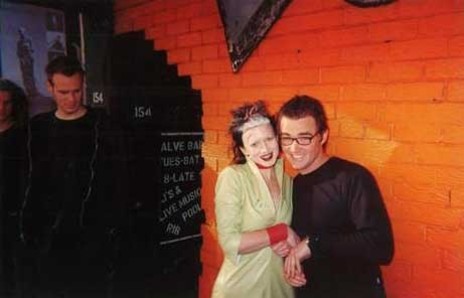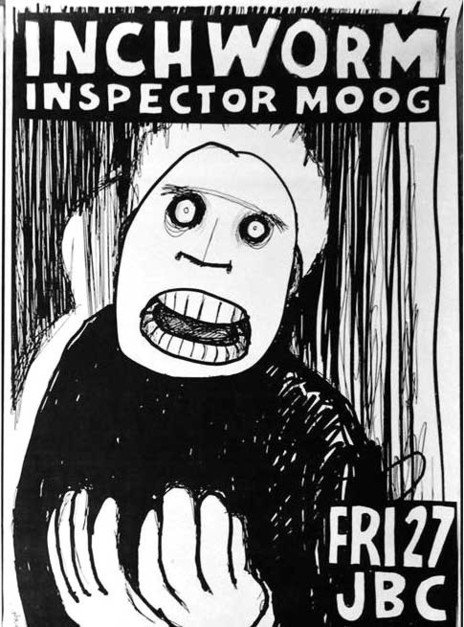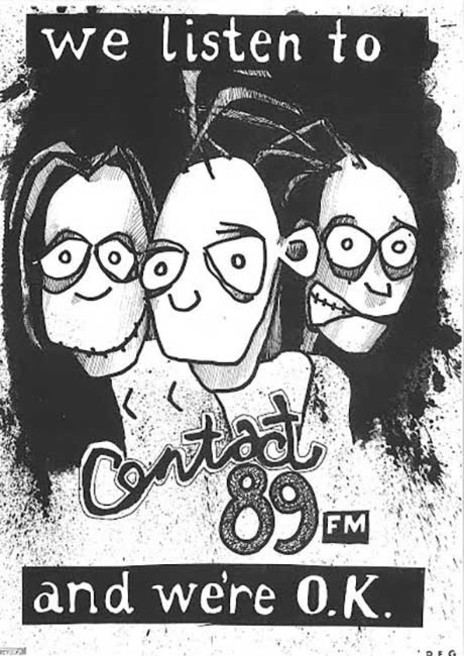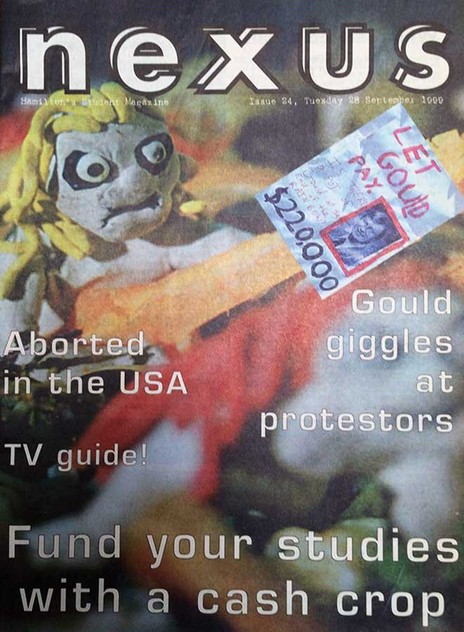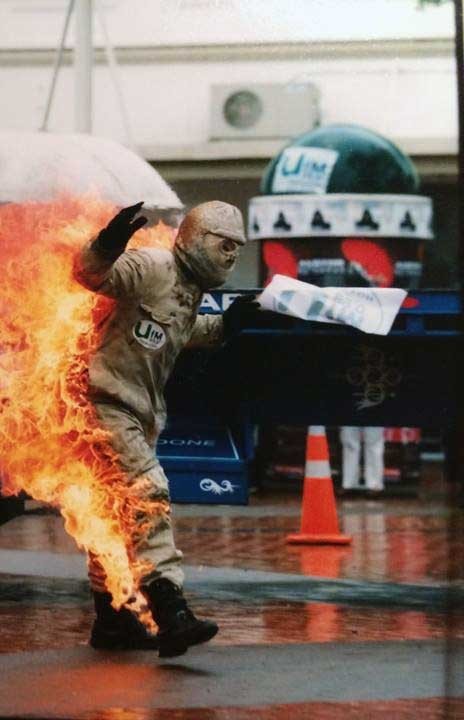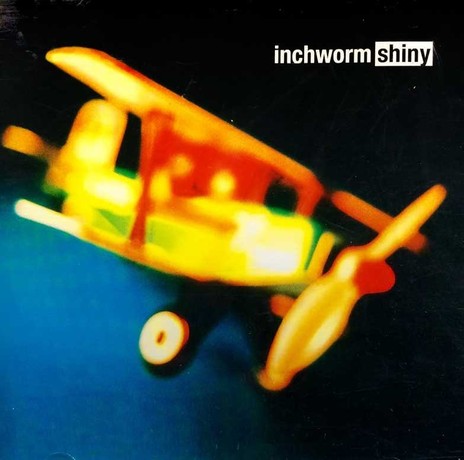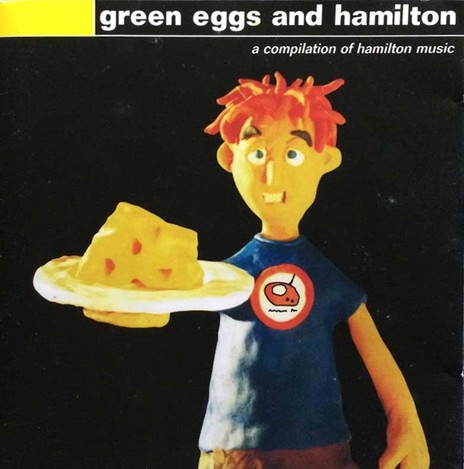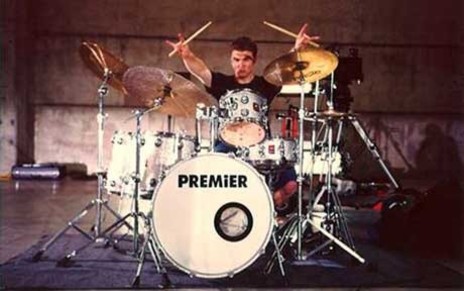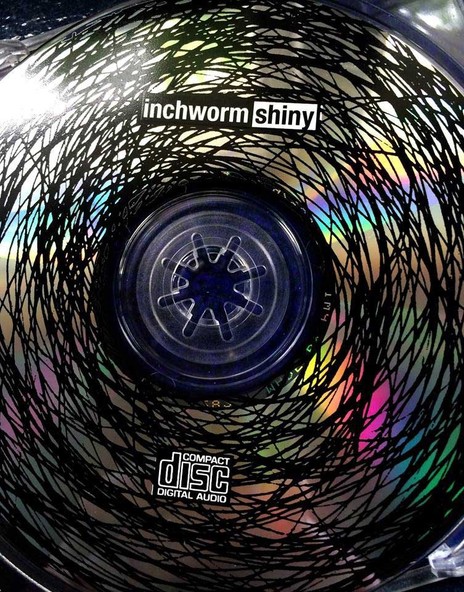Born in 1972 in Palmerston North, Page sketched and tapped (the drumming thing) his way through Freyberg High. The sketching proclivity led him to Auckland’s UNITEC where he studied painting for a year. His tutor Peter Fahey suggested he go to Hamilton and enrol at the new Media Arts department at WINTEC.
It turned out to be one of those moments of delightful synchronicity as Hamilton’s Hark Records was getting underway. The label had several NZ On Air music video grants under its belt and no one to make them happen.
He started making videos for the new label while carefully keeping a foot in the door at WINTEC so he could continue to use equipment.
Page stumbled onto the label via his mates, local band Inchworm, who had recently won the top prize at the Waikato Rock Awards. Their prize included time at the Hark-owned Zoo Recording Studio. They brought Page in to make the video for the song they had recorded and once he was in the door that was the end of any formal education. He started making videos for the new label while carefully keeping a foot in the door at WINTEC so he could continue to use equipment. However, time demands meant he did not complete his course work and graduate.
During 1994, his final year at WINTEC, he made 10 music videos including Knightshade’s comeback single ‘Television Eyes’, Inchworm’s ‘Come Out’, Throw’s ‘All Different Things’ for Christchurch label Failsafe, and ‘Food’ for Hamilton indie band 5 Girls.
That same year he was caught surreptitiously filming Shihad at a University of Waikato Orientation gig. Hauled up by the band manager Gerald Dwyer, Page showed him the footage and a suitably impressed Dwyer introduced him to the band. Based on that meeting they later asked him asked him to make a video for their song ‘Yr Head Is A Rock’ (1996).
One thing most of these videos have in common (the exception is Inchworm’s ‘Come Out’) is that they are all stop-motion animations made using plasticine, a style that was fast becoming Page’s speciality. In 1994 he also released a short film, Decaff, featuring a subversive claymation character.
Decaff ran in cinemas as an opening short during the New Zealand run of Kevin Smith’s hit movie Clerks and Page became something of a local cult sensation. This brought him to the attention of advertising giants Saatchi and Saatchi, who commissioned him to make a short film for NZ On Air celebrating a centenary of NZ cinema.
His 1996 short film ran alongside a short made by John O’Shea, the godfather of the modern NZ film industry or, as Saatchis put it: “A hundred years of NZ cinema through the eyes of the nation’s oldest and youngest filmmakers.”
It introduced Page to the world of television advertising and he has since made so many adverts that he has lost count. Page: “I don’t make the big ads, I make the ones that run either side of them, the bread and butter ads. I am a workman like ad maker, a tradesman builder. The camera is my hammer and I will build anything that is required.”
The next few years were all go and included a two-year paid stint as breakfast host on Hamilton’s UFM (1998-99), the commercial station that picked up the frequency vacated by the University of Waikato student radio station Contact after it was shut down.
For both of those years his breakfast show rated third in the city and he is credited, along with co-host Dean Ballinger, as creator of the phrase “The Tron”.
During a quest to find another slogan for the city – other than the much-mocked “Hamilton, Where It’s Happening” – a listener phoned in with the phrase “Hamiltron, City Of The Future” which Page and Ballinger shortened down to “The Tron”. The rest is history.
In 1995 Page, a self-taught drummer (“I learned by watching Inchworm drummer Rob Talsma do his thing”) joined his first band, Hamilton alt-rockers Rumpus Room. The other members were the three Newth Brothers, Andrew, Scott and Kent, whose previous projects included pioneering Hamilton electronica act Love and Violence.
Rumpus Room is still going today and Page, though domiciled in Henderson, (he calls it “Bigger Hamilton”) still makes regular runs down to The Tron for gigs and band practices. However, perhaps his most well-known musical outing was with Paul Martin’s metal outfit World War Four.
At the 2005 edition of Paul Martin’s annual Gemini Party, (a big event on the Hamilton social calendar where Geminis and their friends get together to party and listen to metal), Page took a deep breath, approached Martin and asked if he could try out for the vacant drummer stool in World War Four. The pair hit it off and he spent six years (2005-2011) in World War Four.
Page remembers opening for Black Sabbath with Dio at the G-Taranaki Festival as the absolute highlight.
“I learnt a lot from being in World War Four,” says Page, "The experience, especially playing for motorcycle gangs, made me less naïve about how the world worked.”
There were other bands, including Malestrum, a fake Norwegian metal band that was rolled out for various events including the annual Hamilton Fringe Festival, and some time with Auckland prog-rockers Ishtar.
In 2000, while driving back to Henderson after a Hamilton gig, Page saw three kids standing on the side of the road at Gordonton. “They sort of appeared out of the fog and just stood there staring, and it scared the shit out of me.” Three years later he had turned the moment into a film script. Making a feature film had long been on the “to do” list and he had vowed that if he had not made one by the age of 30 he would give it all up and go truck driving. Three weeks before his 30th birthday the NZ Film Commission gave him $2 million and work on his first feature film, The Locals, was underway. “It busted my cherry and made me into a man,” says Page of the experience.
Filmed entirely in the Waikato, it was also an opportunity to showcase the Hamilton music that he loved so much – Inspector Moog, The Datsuns and MSU. “I had made music videos for eight of the eleven artists featured on the soundtrack. The other three bands are all my friends from Hamilton on whom some of the film's characters are very loosely based.”
The Locals didn’t exactly set the box-office alight but it did get an international distribution deal and through regular TV screenings in the US and festival appearances it has garnered a solid cult audience.
During a stint as guest tutor at WINTEC 2010 he told the students, “I broke all the rules and I urge you to do the same. Use the gear, (you have paid for it) and just get out there and do shit.”
His advice on how to get a good performance from a band on a video shoot? “Taking a band out of their comfort zone gets the best out of them.”
One of his fondly recalled shoots is ‘Dominoes’ for Fur Patrol. “I made them stand in a swimming pool full of water for hours. It was slow torture but produced a great performance.”
For Betchadupa’s ‘Sleepy News’, he “made them stand in fake rain for several hours. It was bloody hard for them but they delivered. I could not get Elemeno P happening for the ‘Verona’ shoot so ended up sticking them in an industrial ice-cream freezer wearing T-shirts. It was minus twenty-eight degrees and it proved very motivational.”
The D4 wanted to emulate the New York Dolls for their song, ‘Ladies Man’, but felt uncomfortable dressing in drag, New York Dolls style, so Page dressed up in drag as well to relax them. Another D4 shoot, ‘Exit To The City’ proved especially memorable and “filled with magic I have not been able to emulate since.”
“The band were positioned in the back of a van and I instructed the driver to take the corners ‘as hard as she could’, and I told the band – ‘this might be rough’. It was rough. If you look closely you might see Vaughan fall over and smash his guitar stock into Dion’s head.”
In 2015 Page directed SJD’s ‘I Wanna be Foolish” and says “It is no better or worse than my first clips and making it reminded me why I love making music videos.”
“My motivation? I make music videos to flex my creative muscle and be free and silly. I have tried all kinds of things over the years with music videos but I keep returning to my first love, animation. It’s a grind but it lubricates my problem solving instinct and keeps me fresh and original. I always step sideways and inside out when faced with an animation problem.”
His favourite music videos?
“The two P-Money clips, ‘Falling Down’ and ‘Angels’, because we shared a similar work ethic and visual aesthetic and we worked well together despite the music not being my usual thing. I was at a peak when I made those. They have lots of ideas and they seem less forced than some other work I have done.”
Page made several videos for The Datsuns including their first, 2002’s ‘Super Gyration’ (shot in an Onehunga panel beaters) but he ranks the video for their 2006 song ‘Waiting For Your Time To Come’ as one of his most special.
“The Datsuns let me to do whatever I wanted for this project and the result is Greg Page through and through. It was painted frame by frame and I just got lost in it. It was one of those magic clips that just made itself. I was low and not busy when I did that one and it reawakened my love of what I do.”
When he isn’t on set Page can be found hard at work in his home studio painting (he maintains a prodigious output) and designing posters for bands. “There have been hundreds, all made by old school methods, ie no Photoshopping,” and if an artist or band has only a small budget for a video, Page will often do it on his own in his shed using whatever he has at hand including his smart phone. His next goal is to reach the 100 music videos milestone and, fingers crossed, another feature film.
